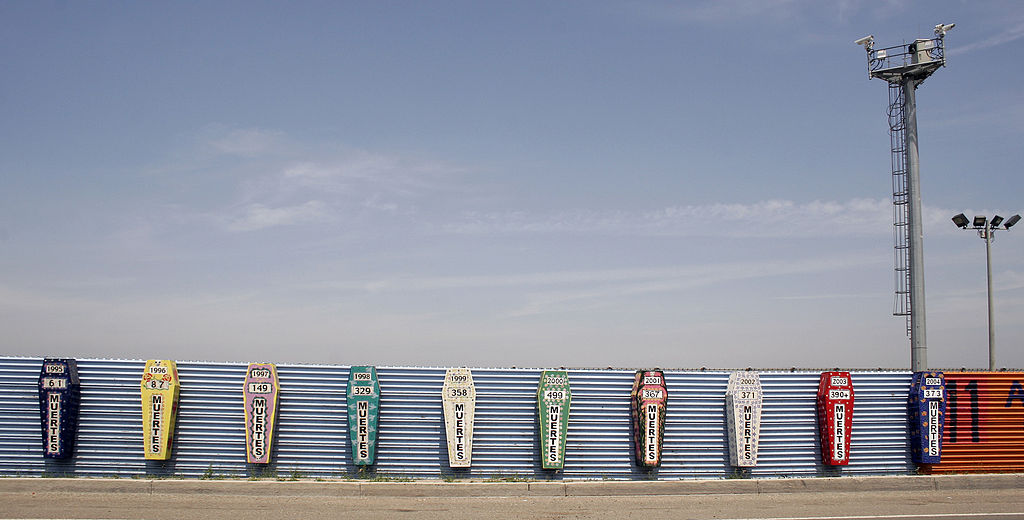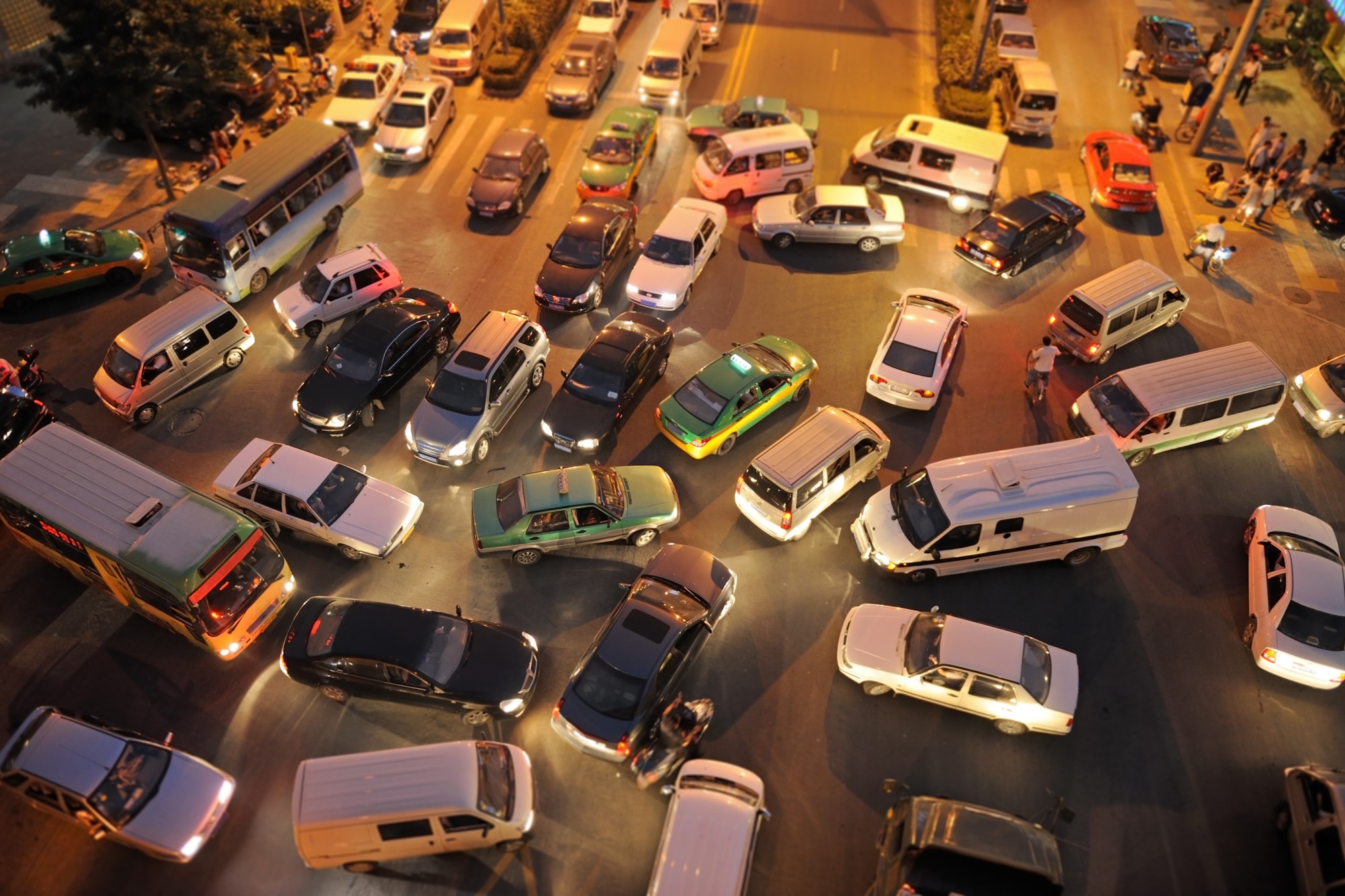Moral Responsibility at the U.S.-Mexico Border
On May 15, 2018, CNN reported that the U.S. Border Patrol, which is “tasked with tracking and trying to prevent border-crossing deaths,” has been undercounting the number of deaths of people who perished trying to cross the U.S.-Mexico border in contravention of U.S. Immigration laws. CNN reportedly identified more than 500 deaths over and above the Border Patrol’s official tally over the last 16 fiscal years. As CNN reports, undercounting deaths “minimizes the magnitude of the humanitarian crisis associated with illegal crossings” and “makes it harder for the United States to assess the full impact of a border policy, in place since the mid-1990s, that uses barriers and other enforcement tools to push migrants to more remote, deadlier crossing points.”
The number of deaths of migrants attempting to cross the U.S.–Mexico border reportedly surged in 1994, when the Border Patrol decided to use physical barriers in urban areas to deter immigration and push border crossers to “more remote and dangerous terrain.” Policy makers thought that many people would choose to not attempt a crossing once they realized the mortal peril they would face in the rough desert terrain they would have to cross. This turned out to be inaccurate. According to CNN, “the number of migrants dying on the border had jumped from dozens a year to hundreds.”
Concerning these deaths, Doris Meissner (then-Commissioner of the Immigration and Naturalization Service) reportedly said, “The deaths weren’t contemplated… Obviously, one can’t be anything but regretful about the deaths.” And indeed, the Border Patrol did launch an initiative in 1998 “to warn migrants about risks, rescue those in trouble, and quantify border-crossing deaths.” Meissner’s use of “regret” suggests that she thinks the deaths are a bad side effect of the border policy, and that it would be better if these deaths did not occur. However, it does not seem that Meissner is expressing any acceptance of moral responsibility or guilt for these deaths. They may be regrettable, but apparently not enough to change policy. Whether or not the Border Patrol ought to be held responsible for these deaths raises the philosophical “doctrine of double effect.”
Originally formulated by Thomas Aquinas and now most often cited in end-of-life medical treatment issues, the doctrine of double effect sets criteria for determining when “an action that causes serious harm, such as the death of a human being, as a side effect of promoting some good end” is morally permissible (Stanford Encyclopedia of Philosophy – SEP). In a 1949 article in Theological Studies, Joseph Mangan set out four conditions (summarized in the SEP article) pertaining to the doctrine of double effect. Let us consider each in turn and see how the border policy fares:
- That the action in itself from its very object be good or at least indifferent
The action, in our case, is the construction and maintenance of physical barriers, such as fences and walls, along the U.S.–Mexico border. While this action may not be in itself good, it seems reasonable to characterize it as morally indifferent. The action itself does not seem to be a moral wrong. The action’s morality is to be judged in terms of its consequences.
- That the good effect and not the evil effect be intended
The intended good effects, in our case, are the prevention and deterrence of illegal border crossings and the effective enforcement of duly enacted immigration laws. To be sure, it is debatable whether these effects are good. If one believes that U.S. immigration laws are themselves unjust, then enforcing them would not be a good outcome. Let’s assume, for the sake of this post, that the laws should be enforced.
The evil effect under question would clearly be the deaths of people attempting to cross the border. Note that the doctrine of double effect assumes that intending an effect is different from merely knowing that an effect will occur. One might say that the fact that the Border Patrol has attempted to reduce the number of border crossing deaths is evidence that they do not actually intend this evil effect. However, articulation of the policy suggests that the direct intent was to push would-be border-crossers to more dangerous terrain. Those people would either turn back or die; either way, stories would filter back to local communities and serve to suppress people’s desires to immigrate to the United States illegally. Perhaps the intention was not to cause deaths per se, but rather to put people into dangerous situations. This still would seem to be an intended evil effect.
- That the good effect be not produced by means of the evil effect
There may be two ways of characterizing the order of causation in our case. The one more favorable to the border policy goes like this: The Border Patrol erects physical barriers at urban crossing zones. Would-be border crossers perceive that the only possible paths of crossing now open them would be too dangerous to attempt. Consequently, would-be crossers choose not to attempt to cross and illegal immigration drops. Here, the good effect flows from the action without any real need for the evil effects—the deaths—to occur. However, another way of characterizing the causality is less favorable. The Border Patrol erects the physical barriers. Border-crossers attempt to cross through unsafe areas, but fail and lose their lives. Consequently, other would-be border crossers hear of these failures and choose not to try. Here, the good effect is produced by the evil effect because it is the deaths, and subsequent information concerning them, that actually stops people from coming.
- That there be a proportionately grave reason for permitting the evil effect
To meet this condition, the prevention and deterrence of border crossing must be a valuable enough goal to justify the deaths of the border crossers. How one might evaluation this question relies on one’s overall assessment of the effects of illegal immigration. Would increased illegal immigration really cause serious harms and burdens for innocent American citizens? Do alternative border policies produce consequences even worse than this one?
Though not a specific condition of the doctrine of double effect, it is worthwhile to note that the whole argument relies on the assumption that the action actually produces the intended good effect. If it does not, then clearly it could not be considered morally permissible. In our case, some have doubted that the border policy is any more effective in deterring illegal immigration than other policies. A 2002 report by the independent, nonpartisan research institute Public Policy Institute of California claimed that “although the stream of unauthorized immigrants may have slowed in some areas, it has increased in others. Furthermore, there is evidence that increased border enforcement may encourage unauthorized immigrants to stay longer in the United States.”
By its nature, our national borders will likely remain zones of enormous political contention and moral ambiguity. Let us not forget that moral responsibilities we have to the individuals who try to cross the border ought also to play a role in how we craft and reform our immigration and border policies.





